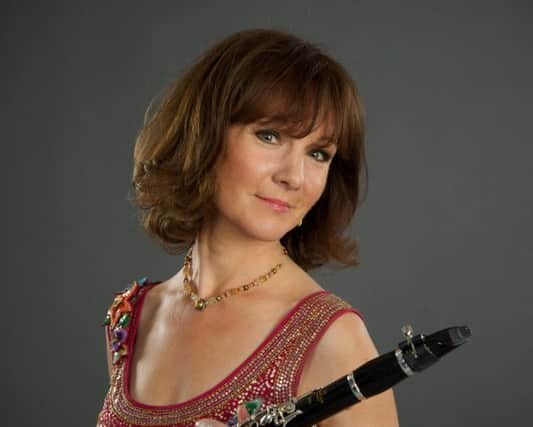Festival of Chichester: Mozart remains the pinnacle


“I play a lot of repertoire,” says Emma who performs alongside Worthing Symphony Orchestra for the Festival of Chichester in Chichester Cathedral on Friday, July 11 at 8pm.
“I love playing Finzi and Copeland, and I have started to play quite a bit of jazz. They are all really fun to play, but the fact that the Mozart Clarinet Concerto is still the most famous of all says it all. It has got such supreme qualities. It is finely balanced; it is finely judged; and it contains a wide range of real emotion.
Advertisement
Hide AdAdvertisement
Hide Ad“It is also quite nostalgic. He wrote it at the end of his life, though he didn’t know that it was the end of his life, so sometimes perhaps we are giving it that nostalgic feel in hindsight, but there is a sadness there.”
Emma will be playing it in Chichester, having been signed up for the concert following the sudden retirement through injury of cellist Julian Lloyd Webber earlier this year. She’s delighted to be renewing her friendship with Worthing Symphony Orchestra with whom she performed the Finzi last season at their home in Worthing.
“It’s a hard piece for the orchestra, and they absolutely nailed it. They are professional players, but you feel that they are doing it because they want to. I was extremely impressed by them.”
The Mozart was the obvious piece to play: “I suppose of all the clarinet pieces, it is the best known and the best loved. It’s quite a responsibility in that sense to play it. People have heard it before. But it has got the power to move people and also to excite people. It feels like a responsibility, but I love to play it.
Advertisement
Hide AdAdvertisement
Hide Ad“It is still one of the best written pieces for the clarinet. Mozart was a composer that really got to know the instrument that he was writing for. He really brought out all its qualities from the darkness and feel of the lower register to the more silvery feel of the upper register. He really knows how to make the instrument sing.
“I play a lot of concertos written later for the instrument, but they often have problem such as the balance being wrong between the orchestra and the solo instrument. But Mozart judged it beautifully. He is still the great genius.
“Obviously, it was supreme skill. Mozart spent hours and hours and hours studying and playing music, but the key was Mozart himself was a performer. He had that practical experience of what works on stage and knows not to tax the instrumentalists, but nevertheless stretch them.”
So what’s the difference between stretching and taxing?
“Sometimes composers think that they want to do something completely new that nobody has ever done before, and they think they are being extremely clever and are pushing the boundaries by just writing something that is very hard, but I don’t think that that sort of mentality usually pays off. It is far better simply to get into the personality of the instrument, and that’s what Mozart does so well.”
Advertisement
Hide AdAdvertisement
Hide AdEmma’s career was launched spectacularly when she won the the 1984 BBC Young Musician of the Year competition, playing one of Crusell’s clarinet concertos in the televised final.
“It was a great start. It just meant that a lot of people were aware of your playing. No competition success is a guarantee of success, but it is terrific to have that because the invitations start to come in and you just hope that it all snowballs from there.
“It was just the best thing. I really believe in competitions. People play to the best of their ability, and the judges are trying to pick the best player. Sometimes in the real world, other factors come into it, but in a competition there is a purity about the way that you are being judged.”
The concert also features Shostakovich: Festival Overture; William Lloyd Webber: Aurora; and Elgar: Enigma Variations.